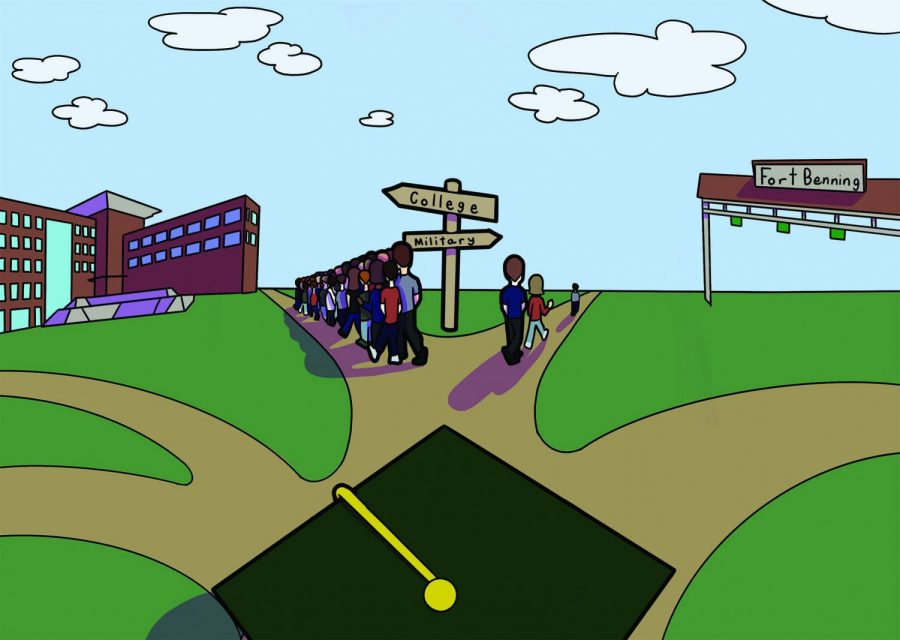Students choose alternate post-secondary path
Enlisting for financial reasons, tradition
Getting screamed at while picking out his breakfast was new to Alumnus Zach Schafer (‘20) on his first morning of basic training for the U.S. Space Force.
After graduating high school, the majority of students continue on to college. Some take alternative paths such as gap years, employment and enlistment in the military.
Staff Sgt. Wesley Tanner is an army recruiter who works with students in the North Shore area, including at Glenbrook North.
Tanner said in a phone interview that students mainly choose to enlist for financial reasons or to maintain family tradition.
“Not everyone has that ability to afford college or even get tuition assistance, so the Army is a way to get that college tuition assistance,” said Tanner. “Even if you just do the Reserves, you get the tuition assistance, or if you do a three-year contract, then the Army will pay you for a four-year degree.”
Students also decide to enlist because they “come from a long family line of military moms and dads, and they want to carry on family traditions and that experience,” Tanner said.
According to Schafer, he realized early in his senior year that he did not know what he wanted to do after high school.
Schafer has many family members who served in the military, which prompted his decision to enlist. He also decided to join due to the variety of job options in the military.
By enlisting, Schafer would have time to figure out what he is interested in and get paid in the meantime, Schafer said.
Alumnus Quinn Crockford (‘20) said in a phone interview that he enlisted because of the camaraderie among soldiers and he “wanted to fight for [his] country and put [his] life on the line so others don’t have to.
“Ever since I was a little kid I thought it’d be cool to be a soldier,” said Crockford. “It didn’t really become real until middle school when I was like, ‘School’s really not my thing, I want to try something different.’”
Crockford started talking to a recruiting officer when he was 17 and enlisted on his 18th birthday. He trained for 22 weeks in Fort Benning, Ga. and is currently stationed in Joint Base Lewis-McChord, Wash., as an infantryman.
“I wake up around 4:45 a.m., eat some breakfast, have to be at [physical training] by 5:45 a.m., work out from then to 8 a.m., then come back, shower and shave and go about my day,” Crockford said.
Both Crockford and Schafer plan to attend college after their active duty.
According to Schafer, he originally enlisted in the Air Force and signed up to work in intelligence. When all intelligence jobs were moved to the Space Force, he switched to that branch.
One of Schafer’s most memorable moments during basic training was when he was issued his operational camouflage pattern, also known as an OCP.
“Before you get those OCPs, you’re just wearing [physical training] gear, shorts and a T-shirt, but you see all your instructors and … those who have been there longer have those OCPs,” said Schafer. “It’s like, ‘Wow. They look so cool. I wish I could wear those.’ Then you finally get to wear them, and you feel so amazing in them.”


